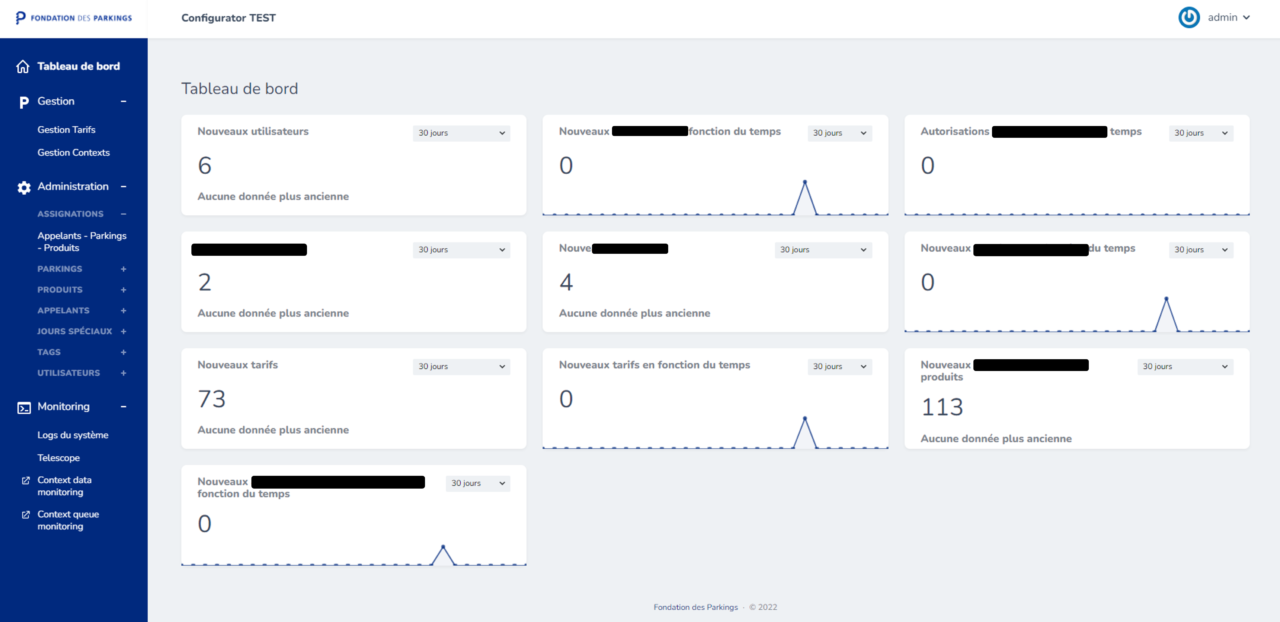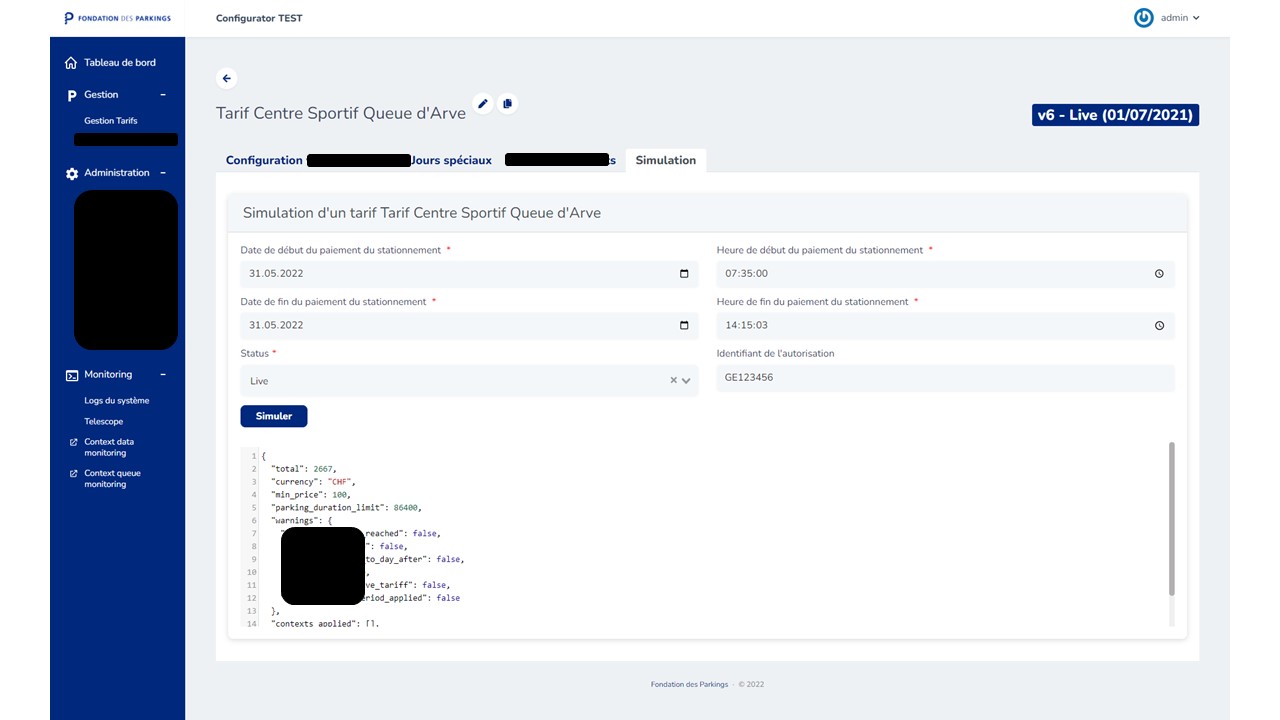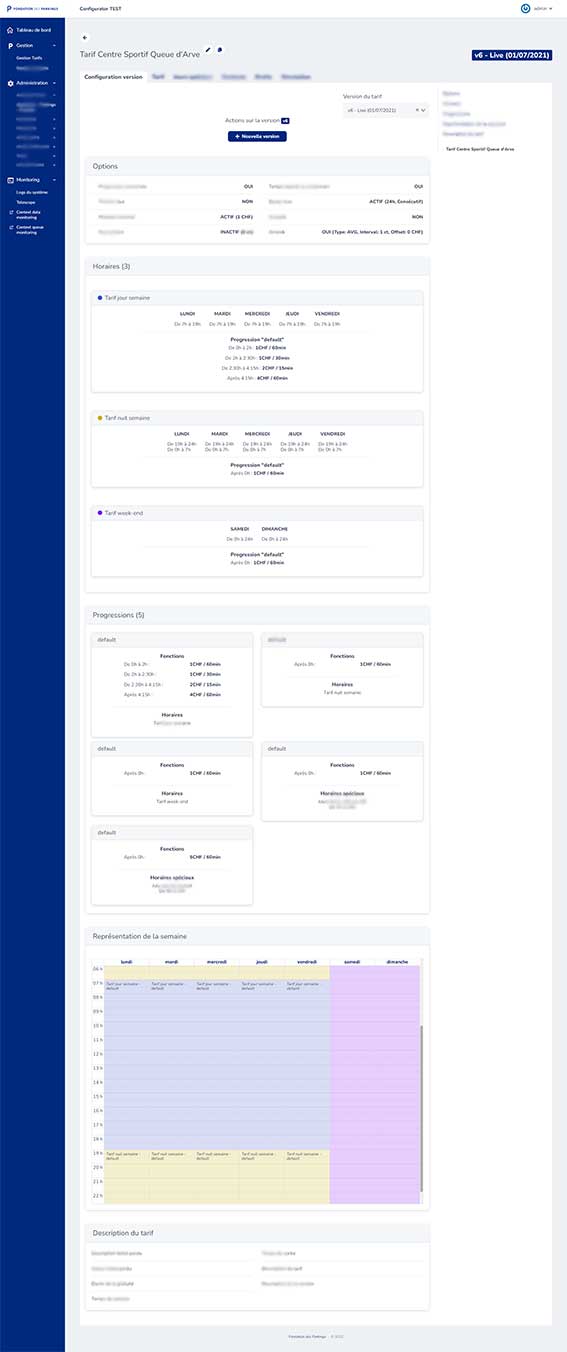At the end of 2020, we won the call for tenders launched by the Fondation des Parkings for a new digital project that is part of its global strategy of digital transformation.
MobileThinking was therefore mandated to accompany and develop the "Tariff Module" project, which allows the parameterisation of parking tariffs and the calculation of parking costs in the various infrastructures managed by the Fondation des Parkings as well as on the public streets.
The Tariff Module makes it possible to centralise and standardise the calculation of costs, which until now has been implemented in different systems, and to extend its possibilities in terms of configuration, and therefore the offer to its customers.
For example, when you pay for your parking with one of the partners' mobile applications (see a selection on https://www.gepark.ch/), their server contacts the common calculation engine that we developed for the Fondation des Parkings. Previously, each partner had its own calculation engine and had to update its tariff configurations independently, creating additional communication and significant risks of error.
MobileThinking was therefore mandated to accompany and develop the "Tariff Module" project, which allows the parameterisation of parking tariffs and the calculation of parking costs in the various infrastructures managed by the Fondation des Parkings as well as on the public streets.
The Tariff Module makes it possible to centralise and standardise the calculation of costs, which until now has been implemented in different systems, and to extend its possibilities in terms of configuration, and therefore the offer to its customers.
For example, when you pay for your parking with one of the partners' mobile applications (see a selection on https://www.gepark.ch/), their server contacts the common calculation engine that we developed for the Fondation des Parkings. Previously, each partner had its own calculation engine and had to update its tariff configurations independently, creating additional communication and significant risks of error.






